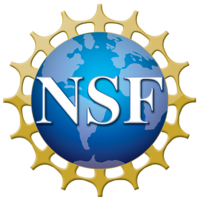| Brendan Hassett | |
Rationality criteria for cubic hypersurfaces |
| |
An algebraic variety is rational if it admits a birational parametrization by affine space.
We still do not know which cubic fourfolds are rational or how to prove that any are not rational!
We survey recent results—using classical geometry, Hodge theory, and newer techniques like derived
categories—as well as concrete open questions.
|
| Amy Huang | |
Linear Spaces of Matrices of Bounded Rank |
| |
A linear subspace of the space of b×c matrix is of bounded rank r if no matrix in the space has rank greater than r.
Classifications of them are an interesting and important problem with potential application to matrix multiplication complexity.
The only case known is when r ≤ 3 with proofs given by Atkinson via the study of Atkinson normal form and
by Eisenbud and Harris via the study of the first Chern class of a sheaf associated with the space.
I will discuss a connection between these two approaches as well as the recent progress in the classification
of the basic space of matrices of bounded rank 4. This is joint work with J.M. Landsberg.
|
| Kimoi Kemboi | |
Full exceptional collections via window categories |
| |
Derived categories are an important invariant for algebraic varieties.
This talk will explore a particular structure of derived categories called a full exceptional collection.
We will discuss the landscape of full exceptional collections and their connections to geometry.
Using ideas from window categories and equivariant geometry, I will explain how to produce full exceptional
collections of tautological bundles for a large class of projective linear GIT quotients by reductive groups of arbitrary rank.
|
| Lucas Mason-Brown | |
Some progress on the problem of the unitary dual |
| |
One of the fundamental unsolved problems in representation theory and abstract harmonic analysis is to parameterize the set
of unitary representations of a semisimple Lie group.
In this talk, I will give a gentle introduction to this problem and then explain how ideas from algebraic geometry
(e.g. symplectic singularities and Hodge theory) can help.
|
| Joaquin Moraga | |
Cluster type varieties |
| |
Toric varieties are ubiquitous objects in algebraic geometry. A toric variety can be described
as a (partial) compactification of an algebraic torus such that the volume form of the torus has poles
along every divisor added in the compactification. In this talk, we will introduce the concept of
cluster type varieties which are (partial) compactifications of algebraic tori such that the volume form
has at most poles and no zeros along the boundary. We will discuss many questions regarded
detecting these varieties and classifying them.
|
| Aaron Pixton | |
Cycles on the moduli space of compact type curves |
| |
The moduli space of compact type curves of genus g parametrizes stable algebraic curves with compact
Jacobian.
I will discuss various algebraic cycles on this moduli space.
These cycles will belong to the (compact type) tautological ring, a subring of the Chow ring consisting of the
cycles that arise naturally in geometry through forgetful and gluing morphisms.
The structure of the tautological ring is unknown.
In 2000, Faber and Pandharipande stated a Gorenstein conjecture that would have fully determined its structure, but
in 2013 Petersen disproved this conjecture.
I will explain a recent idea of using certain boundary vanishing properties to describe new explicit counterexamples
to this Gorenstein conjecture.
|
| Padmavathi Srinivasan | |
A canonical algebraic cycle associated to a curve in its Jacobian |
| |
The Ceresa cycle is a canonical homologically trivial algebraic cycle associated to a curve in its Jacobian.
In his 1983 thesis, Ceresa showed that this cycle is algebraically nontrivial for the generic curve over genus at
least 3.
Strategies for proving Fermat curves have infinite order Ceresa cycles due to B. Harris, Bloch,
Bertolini‐Darmon‐Prasanna, Eskandari‐Murty use a variety of ideas ranging from computation of explicit
iterated period integrals, special values of p-adic L functions and points of infinite order on the
Jacobian of Fermat curves.
We will survey many recent results around the Ceresa cycle, and present work with Jordan Ellenberg and Adam Logan
where we produce many new explicit examples of curves over number fields with infinite order Ceresa cycles.
|



